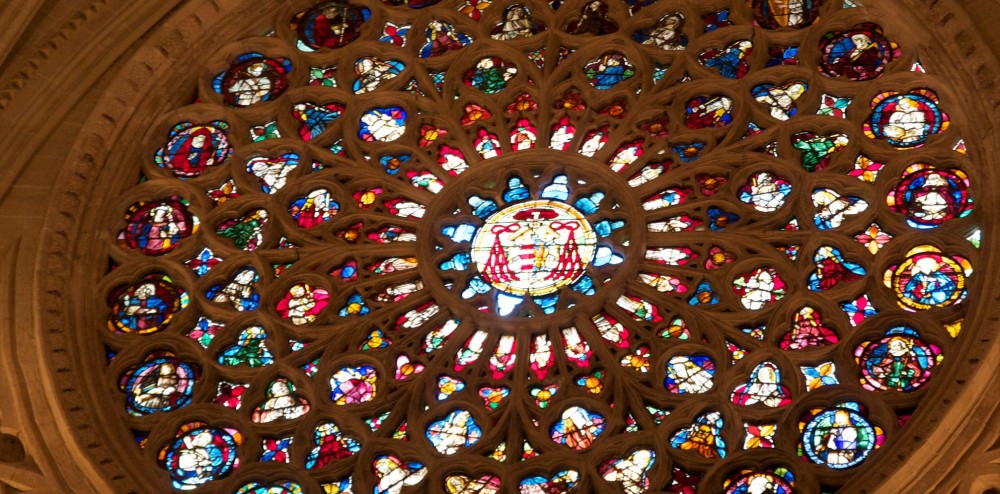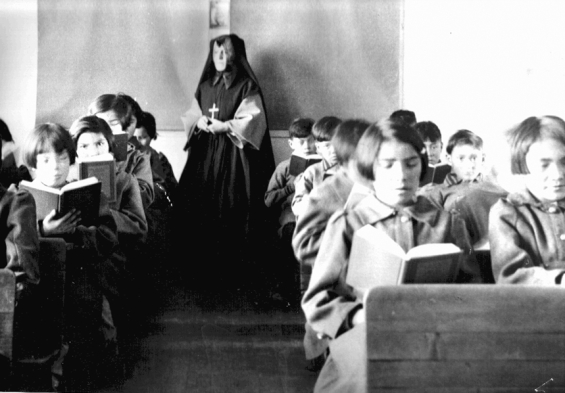Photograph of students from Fort Albany Residential School reading in class overseen by a nun circa 1945. From the Edmund Metatawabin collection at the University of Algoma, via Wikimedia Commons.
On June 28, 2018 The New York Times published the obituary of Daisy Kadibil, an Aboriginal Australian who was taken from her family “under an Australian assimilation policy that sought to absorb Aboriginal people into the country’s white society…”
This sad history reminds me of the efforts of the Canadian government more than a century ago to educate children of the “First Nations” so that they would fit into the modern society. Catholic and Anglican residential schools provided a regimented education that repressed their language and heritage. See Eileen Markey, Canadian Catholics grapple with a history of “whitewashing” indigenous children, America, June 14, 2018.
Within the context of seeking truth and reconciliation, in 2009 Archbishop James Weisgerber of Winnipeg led a delegation from the Assembly of First Nations to meet Pope Benedict XVI. The pope expressed sorrow for the anguish caused by “”the deplorable conduct of some members of the church’ in the operations and management of the former Indian residential schools.” See Deborah Gyapong, Archbishop Weisgerber to Canadians: Take aboriginal justice seriously, Catholic News Service, October 29, 2013.
As both countries look back at these governmental intrusions implemented by religious communities that destroyed family unity, we recall the Second Vatican Council’s teachings: “The family, since it is a society in its own original right, has the right freely to live its own domestic religious life under the guidance of parents” (Declaration on Religious Freedom #5).
As we look back on the history of our nations and strive to overcome the injustices of the past we might ask as well: what are the moral blind spots in today’s culture that call for our attention? In his address to the Pontifical Academy for Life on June 25, 2018, Pope Francis stated “[Bioethics] will begin with a profound belief in the irrevocable dignity of the human person, as loved by God – the dignity of each person, in every phase and condition of existence – as it seeks out those forms of love and care that are concerned for the vulnerability and frailty of each individual.” The person may be vulnerable at many points in a lifespan, but never more at the mercy of others in the womb and in the last stage of this life.

